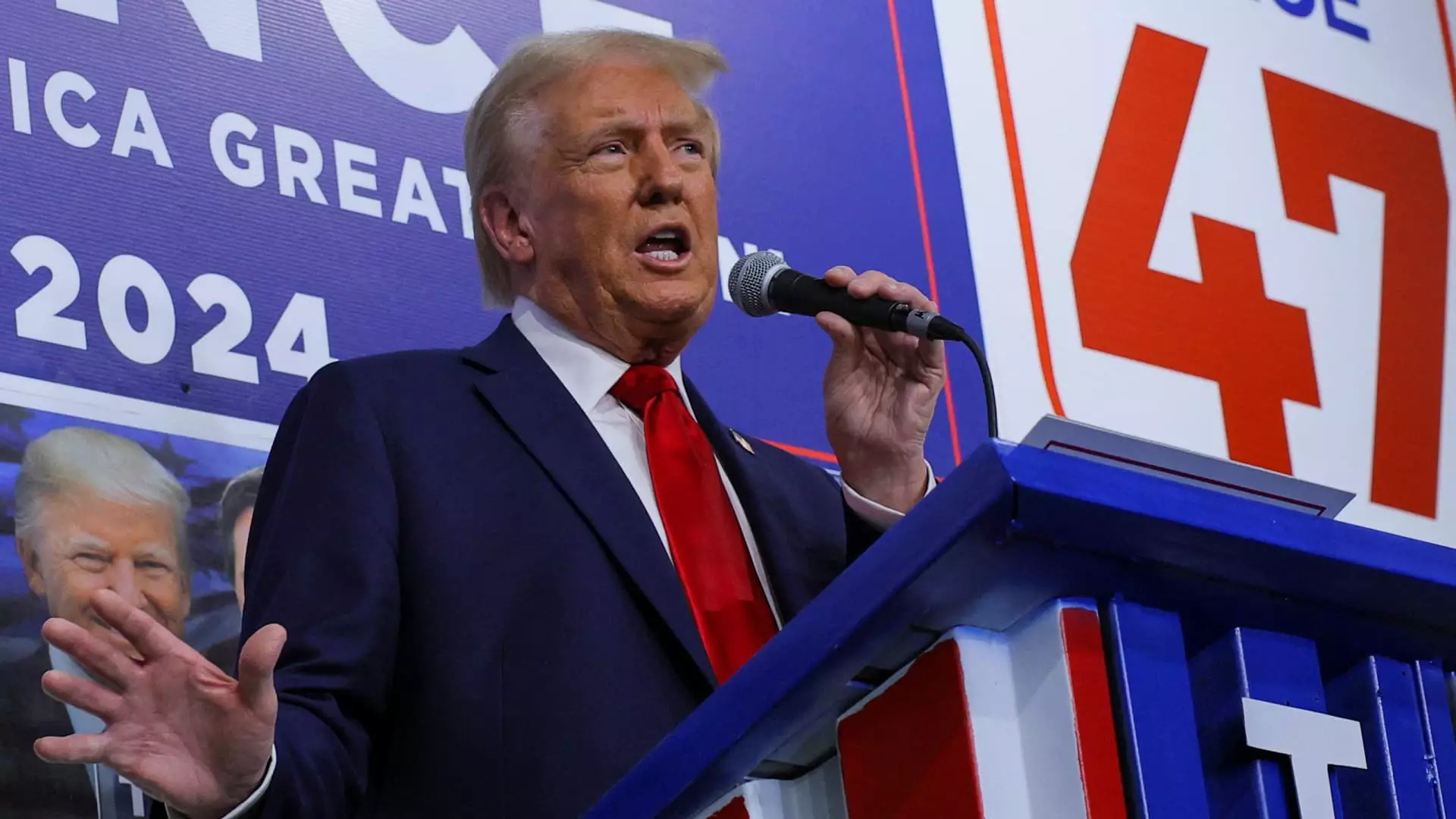Recent polling data from NBC News has revealed significant insights into voter attitudes regarding universal tariffs, a crucial element in former President Donald Trump’s electoral strategy. The survey indicates that a noteworthy 44% of respondents are less likely to support a candidate advocating for a universal tariff rate of up to 20% on imported goods. In contrast, only 35% expressed greater favor towards such a candidate, while 19% indicated that tariffs would not affect their voting decisions. This data, gleaned from a sample of 1,000 registered voters between October 4 and October 8, operates within a margin of error of approximately 3.1 percentage points, highlighting the complexities of voter sentiment surrounding tariff policies.
Despite the apparent unpopularity of universal tariffs, Trump remains steadfast in his belief that imposing higher tariffs will incentivize companies to relocate their manufacturing bases to the United States. In an engagement with Bloomberg Editor in Chief John Micklethwait, Trump posits that by setting tariffs at exorbitant levels, companies would be motivated to establish local factories to bypass these costs. Trump argues that by making tariffs “so high, so horrible, so obnoxious,” businesses would be compelled to invest domestically, a perspective that underscores his broader economic philosophy.
However, Trump’s proposed tariffs extend beyond a blanket application; he suggests an aggressive 20% tariff on imports from all countries and a staggering 60% specifically on Chinese goods. This approach posits tariffs not merely as a protective trade mechanism but as a strategic tool for revitalizing American manufacturing, fostering local job creation, and enhancing government revenues to fund other ambitious initiatives.
Critics of Trump’s tariff plans, including influential economists, caution against the oversimplified notion that tariffs are a panacea for economic challenges. Detractors argue that importers—typically American businesses—would shoulder the burden of these tariffs, a cost most likely transferred to consumers in the form of higher prices. This could potentially reverse recent gains against inflation, complicating the economic landscape that has only recently shown signs of improvement.
Indeed, the problem with across-the-board tariffs lies in their blanket nature. Tariffs serve as a tax on imports, which can hurt American consumers who depend on affordable foreign goods. Economic arguments suggest that these tariffs could lead to a resurgence in inflation—a particularly contentious issue at a time when the economy is still navigating the impacts of previous inflationary cycles.
Trump’s hardline tariff stance has not gone unchallenged even within his party. Figures like Republican Senate Minority Leader Mitch McConnell have voiced their opposition, highlighting concerns about the adverse effects tariffs could have on consumer prices. McConnell’s statement that “I’m not a fan of tariffs; they raise prices for American consumers” reflects a critical viewpoint that could complicate Trump’s campaign strategy, signaling a rift within the Republican Party itself regarding trade policy.
This internal dissent opens a path for opponents of Trump to capitalize on his perceived vulnerabilities. Vice President Kamala Harris, for example, has framed Trump’s tariff policy as a de facto “Trump sales tax,” attempting to leverage voter discontent with the potential financial burdens of such measures.
The Biden administration, while maintaining a firm stance on trade, has opted for a more measured approach compared to Trump’s sweeping proposals. By retaining certain tariffs from Trump’s first term and selectively increasing tariffs on $18 billion worth of Chinese imports, Biden aims to target specific sectors while minimizing overall economic disruption. Treasury Secretary Janet Yellen emphasizes this distinction, asserting that the current administration’s strategy focuses on narrow and strategically important sectors.
The evolving discourse around tariffs encapsulates a broader debate concerning economic policy, voter sentiment, and political strategy. As voter polling exhibits heightened ambivalence toward universal tariffs, the implications for candidates, especially within the GOP, could be transformative, reshaping the landscape in the lead-up to future elections as economic sentiments continue to fluctuate amidst global uncertainties.


Leave a Reply